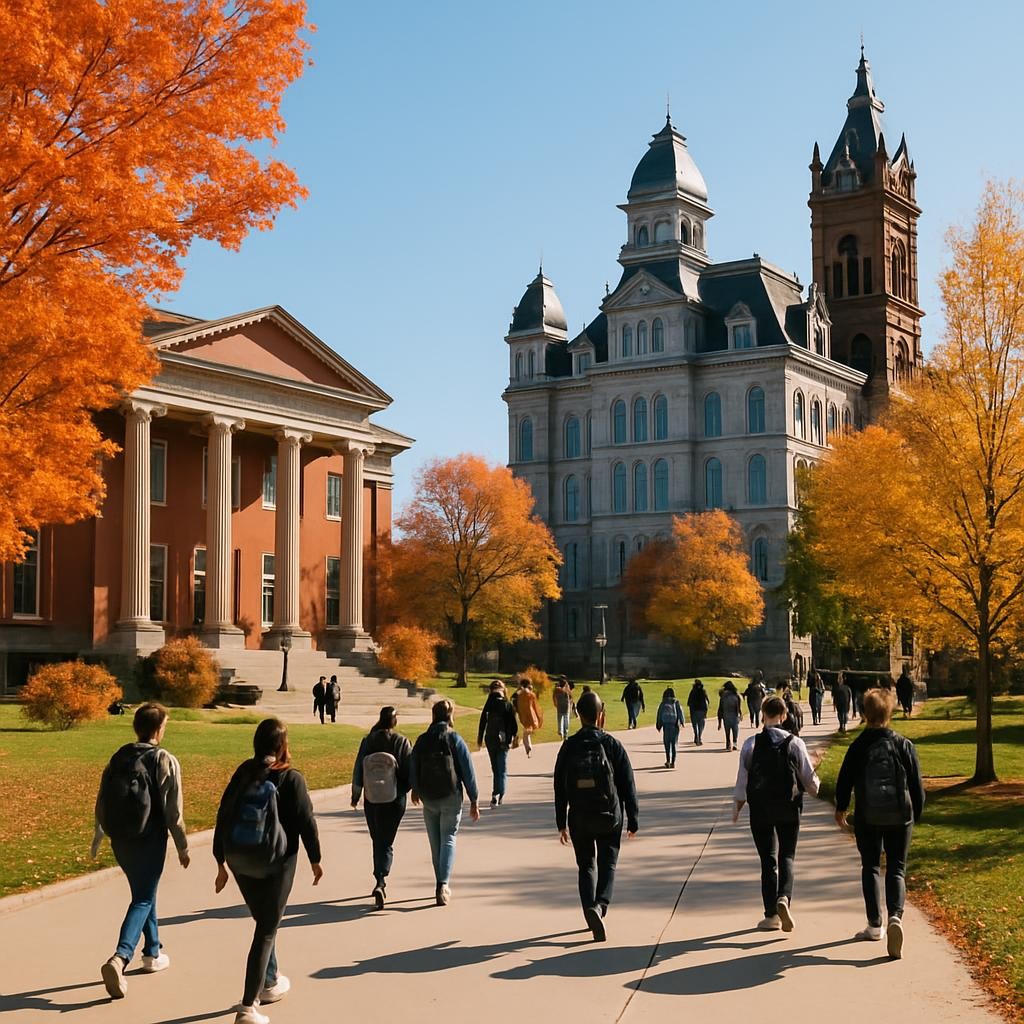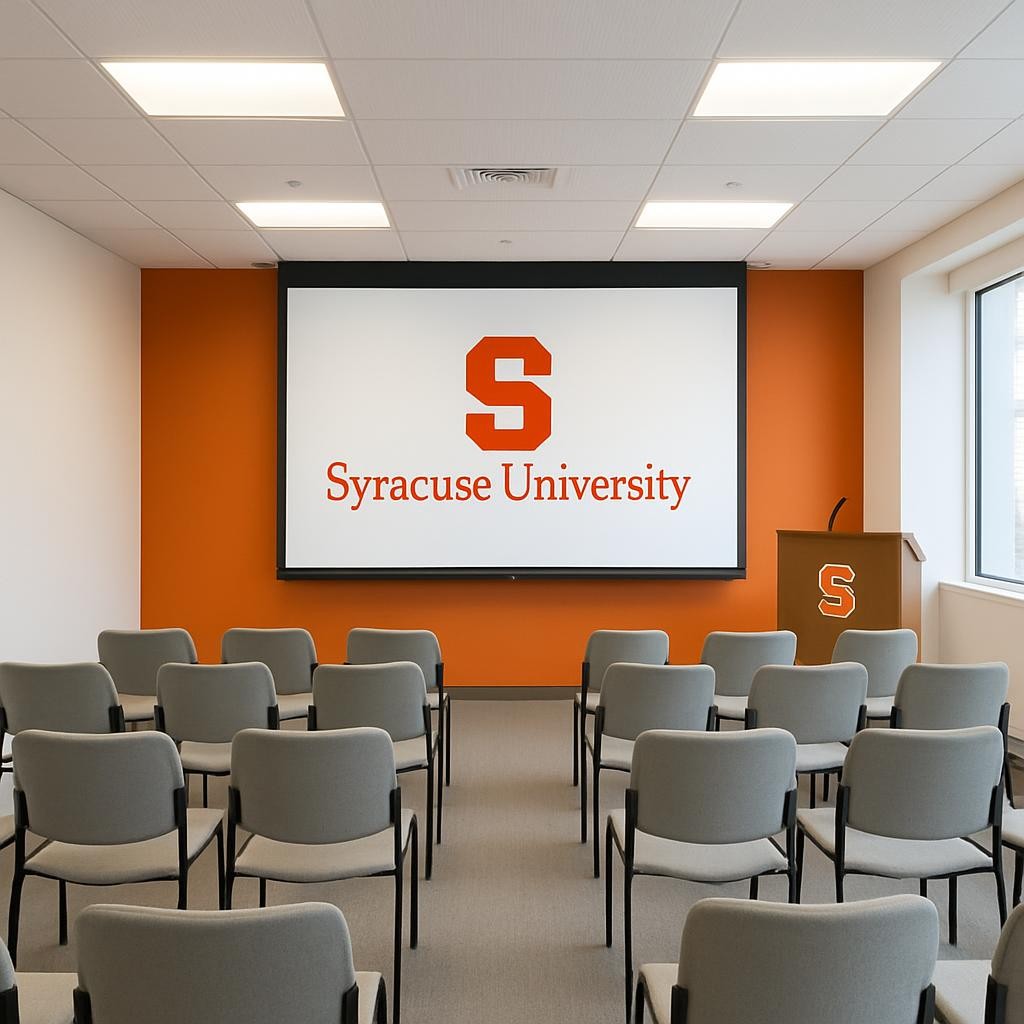How to Optimize Your Syracuse Vacation Rental for Academic Visitors: A Complete Guide to University Market Success

Syracuse, New York presents a unique opportunity for vacation rental owners to tap into a steady stream of academic visitors throughout the year. With Syracuse University serving as a major educational hub and the city hosting numerous research conferences and academic events, properties that cater specifically to university-related guests can achieve higher occupancy rates and premium pricing.
The academic market differs significantly from traditional leisure travelers. Research visitors, conference attendees, and university guests often book longer stays, require specific amenities like reliable internet and workspace areas, and follow predictable seasonal patterns tied to the academic calendar. By understanding these unique needs and optimizing your property accordingly, you can capture a lucrative segment that many vacation rental owners overlook.
This comprehensive guide will walk you through proven strategies to position your Syracuse vacation rental as the preferred choice for academic visitors, from targeting university events to creating research-friendly environments that encourage repeat bookings and positive reviews.
Understanding Syracuse's Academic Market Opportunity
Syracuse's academic market represents a $50+ million annual opportunity for vacation rental owners who understand how to position their properties effectively. The city's educational ecosystem extends far beyond Syracuse University's main campus, encompassing research institutions, medical facilities, and conference centers that generate consistent visitor demand throughout the year.
Key market drivers include Syracuse University's 22,000+ students and faculty, Upstate Medical University's research programs, and the Marriott Syracuse Downtown conference center that hosts dozens of academic events annually. Unlike seasonal leisure travel, academic visitors follow predictable patterns that allow for strategic planning and pricing optimization.
The academic visitor profile typically includes visiting professors, research collaborators, conference speakers, prospective students and families, and graduate student researchers conducting extended studies. These guests often book 3-7 day stays, value workspace amenities over luxury features, and are willing to pay premium rates for convenient locations near campus.
Syracuse's rental market averages around $1,600 per month according to recent market data, which is 18% below national averages, creating opportunities for competitive pricing while maintaining healthy profit margins. The presence of major institutions provides economic stability that supports consistent occupancy even during slower tourism periods.
Location advantages near Syracuse University include easy access to campus facilities, proximity to research libraries, and walkability to academic departments. Properties within a 2-mile radius of campus command premium rates, while those offering shuttle services or public transit access can capture budget-conscious researchers and graduate students seeking longer-term accommodations.
Targeting Syracuse University's Academic Calendar

Strategic calendar planning forms the foundation of successful academic visitor targeting. Syracuse University's academic year creates distinct booking patterns that differ dramatically from traditional vacation rental seasonality, offering opportunities to maximize revenue during typically slower periods.
The fall semester (late August through mid-December) represents peak demand as new faculty arrive, research collaborations begin, and conference season kicks into high gear. Syracuse University's registration period from August 25 through October 3 brings visiting families, prospective faculty candidates, and research partners to campus.
Spring semester booking patterns (January through May) align with conference season, thesis defenses, and visiting scholar programs. Research shows academic conferences peak during February through April, creating prime opportunities for 3-5 day bookings from speakers, attendees, and organizing committees.
Summer opportunities often surprise vacation rental owners with unexpected demand. Summer research programs, graduate student intensives, and academic camps generate steady bookings from May through August. Many researchers prefer summer visits when campus parking is easier and facilities are less crowded.
Key booking windows include orientation weeks (high family demand), parents' weekends (premium pricing opportunities), graduation periods (extended family stays), and research conference clusters that can fill entire properties for academic groups.
Pricing strategies should reflect academic calendar patterns rather than traditional seasonal adjustments. Consider offering weekly discounts for research visitors, monthly rates for visiting scholars, and group booking incentives for conference attendees. Academic departments often have specific budget requirements that make transparent, competitive pricing essential for securing repeat institutional bookings.
Creating Research-Friendly Accommodations
Workspace optimization distinguishes successful academic-focused vacation rentals from generic properties. Research visitors require dedicated work areas that support productive academic activities, making thoughtful space design crucial for positive reviews and repeat bookings.
Essential workspace features include sturdy desks with adequate lighting, ergonomic seating for long research sessions, and multiple electrical outlets for laptops, tablets, and research equipment. Many academic visitors work unconventional hours, so consider providing 24-hour accessible common areas with additional workspace options and printing capabilities.
High-speed internet serves as the most critical amenity for academic guests. Research activities, video conferences with international collaborators, and large file uploads require robust connectivity. Consider upgrading to business-grade internet with dedicated bandwidth and backup options to prevent connectivity issues that could damage your property's reputation among academic users.
Library-quality environment means maintaining quiet spaces conducive to concentration and study. This includes sound insulation between rooms, quiet HVAC systems, and establishing clear noise policies for all guests. Many researchers conduct early morning or late evening calls with international colleagues, making soundproofing investments worthwhile.
Research support amenities can differentiate your property from standard accommodations. Consider providing access to printers/scanners, lamination services, basic office supplies, and reference materials about local research resources. Some successful hosts maintain relationships with local libraries and research facilities to provide guests with information about accessing additional resources.
Extended stay considerations become important for visiting scholars and research collaborators who may stay weeks or months. Provide adequate storage space, kitchen facilities for meal preparation, and laundry access. Many academic visitors operate on limited budgets and appreciate amenities that reduce daily expenses while supporting their research activities.
Marketing to Conference and Event Attendees

Conference marketing strategy requires understanding academic event cycles and building relationships with organizing committees and institutional planners. Syracuse hosts numerous academic conferences throughout the year, from small departmental symposiums to large multi-day events that can generate dozens of booking opportunities.
Direct outreach to conference organizers often yields better results than traditional online marketing. Academic conferences typically finalize hotel blocks 6-12 months in advance, creating opportunities for vacation rental owners to propose alternative accommodations for speakers, VIP attendees, or overflow guests seeking more personalized experiences.
Partnership development with the Marriott Syracuse Downtown and other conference venues can generate referral opportunities when official accommodations fill up. Many conferences experience last-minute registration surges that exceed hotel capacity, creating premium booking opportunities for nearby vacation rentals.
Group booking packages appeal to academic departments organizing symposiums or bringing visiting speaker series to campus. Consider offering multi-room discounts, continental breakfast options, and shuttle coordination to campus locations. Academic groups often appreciate transparent pricing and simplified billing processes that accommodate institutional purchasing requirements.
Marketing channels for academic audiences include university housing offices, departmental administrative staff, and academic association newsletters. Many universities maintain visitor resources pages where vacation rental listings can complement traditional hotel recommendations.
Specialized services that differentiate your property include airport pickup coordination, campus orientation materials, and local research resource guides. Academic visitors often arrive from international locations and appreciate hosts who understand the unique challenges of academic travel, including irregular schedules, specific dietary requirements, and technology needs for remote collaboration.
Optimizing for Extended Academic Stays
Extended stay optimization captures lucrative opportunities from visiting scholars, sabbatical researchers, and graduate students conducting semester-long or year-long research projects. These guests often generate significantly higher lifetime value than short-term vacation renters while requiring different amenities and service approaches.
Monthly rate structures should reflect the value proposition for longer stays while maintaining profitability. Academic institutions often have specific budget guidelines for visitor accommodations, making competitive monthly rates essential for securing institutional bookings. Consider offering progressive discounts that increase with stay length to encourage longer commitments.
Home-like amenities become crucial for guests staying weeks or months. This includes full kitchen facilities, adequate storage for personal belongings and research materials, reliable laundry access, and comfortable living spaces for relaxation between intensive work periods. Many academic visitors appreciate having space to host colleagues for informal research discussions.
Flexible lease terms accommodate the unpredictable nature of academic schedules. Research projects may extend unexpectedly, conference dates may shift, or visa processing may delay arrivals. Successful hosts develop flexible cancellation policies and stay extension options that accommodate these realities while protecting their revenue.
Community integration helps long-term academic guests feel settled during extended stays. Provide information about local amenities, transportation options, recreational activities, and community resources. Many visiting scholars appreciate introductions to local academic communities or professional networking opportunities.
Maintenance considerations for extended stays include regular housekeeping services, equipment maintenance schedules, and periodic property inspections. Academic guests often work from the property extensively, creating different wear patterns than typical vacation renters. Proactive maintenance prevents small issues from becoming major problems during longer occupancies.
Building Relationships with University Departments
Institutional partnerships create sustainable revenue streams through direct relationships with Syracuse University departments, research centers, and administrative offices. Unlike individual bookings, institutional relationships can generate consistent year-round demand and premium pricing for quality accommodations.
Department outreach strategy should target administrative staff responsible for arranging visitor accommodations. This includes department chairs' offices, research center coordinators, and international programs staff who regularly host visiting scholars and research collaborators. Many departments struggle with limited on-campus guest housing and appreciate reliable alternative options.
Preferred vendor relationships with university departments can streamline the booking process while ensuring consistent demand. Consider developing standardized pricing agreements, simplified billing procedures, and direct booking systems that accommodate institutional purchasing requirements and budget cycles.
Research center partnerships offer particularly lucrative opportunities. Syracuse University's various research institutes regularly host visiting scholars, international collaborators, and conference participants who require accommodations ranging from single nights to full academic years. Building relationships with research center coordinators can generate substantial booking volume.
Service level agreements help differentiate your property from standard accommodations. Academic departments value reliability, consistent quality, and responsive communication. Consider offering guaranteed availability windows, priority booking systems, and dedicated contact procedures for institutional clients.
Success metrics for institutional relationships include repeat booking rates, average stay length, and referral generation. Academic departments often share recommendations within their professional networks, making excellent service a powerful marketing tool. Track which departments generate the most valuable long-term relationships and focus relationship-building efforts accordingly.
Value-added services like campus orientation, transportation coordination, and local resource guides demonstrate understanding of academic visitor needs and encourage departments to recommend your property to their visiting scholars and research partners.
Conclusion
Optimizing your Syracuse vacation rental for academic visitors opens doors to a reliable, year-round revenue stream that many property owners overlook. By understanding the unique needs of university guests, research visitors, and conference attendees, you can position your property as the preferred choice for this lucrative market segment.
The strategies outlined in this guide—from academic calendar targeting to institutional partnership development—provide a roadmap for capturing premium bookings while building sustainable business relationships. Academic visitors often become repeat guests and generate valuable referrals within their professional networks.
Success in the academic market requires patience, attention to detail, and genuine commitment to serving the unique needs of research professionals and university visitors. Properties that invest in research-friendly amenities, develop flexible booking policies, and build institutional relationships will find themselves well-positioned to capitalize on Syracuse's thriving academic ecosystem for years to come.
Start implementing these strategies today to transform your vacation rental into a preferred destination for Syracuse's academic community.
